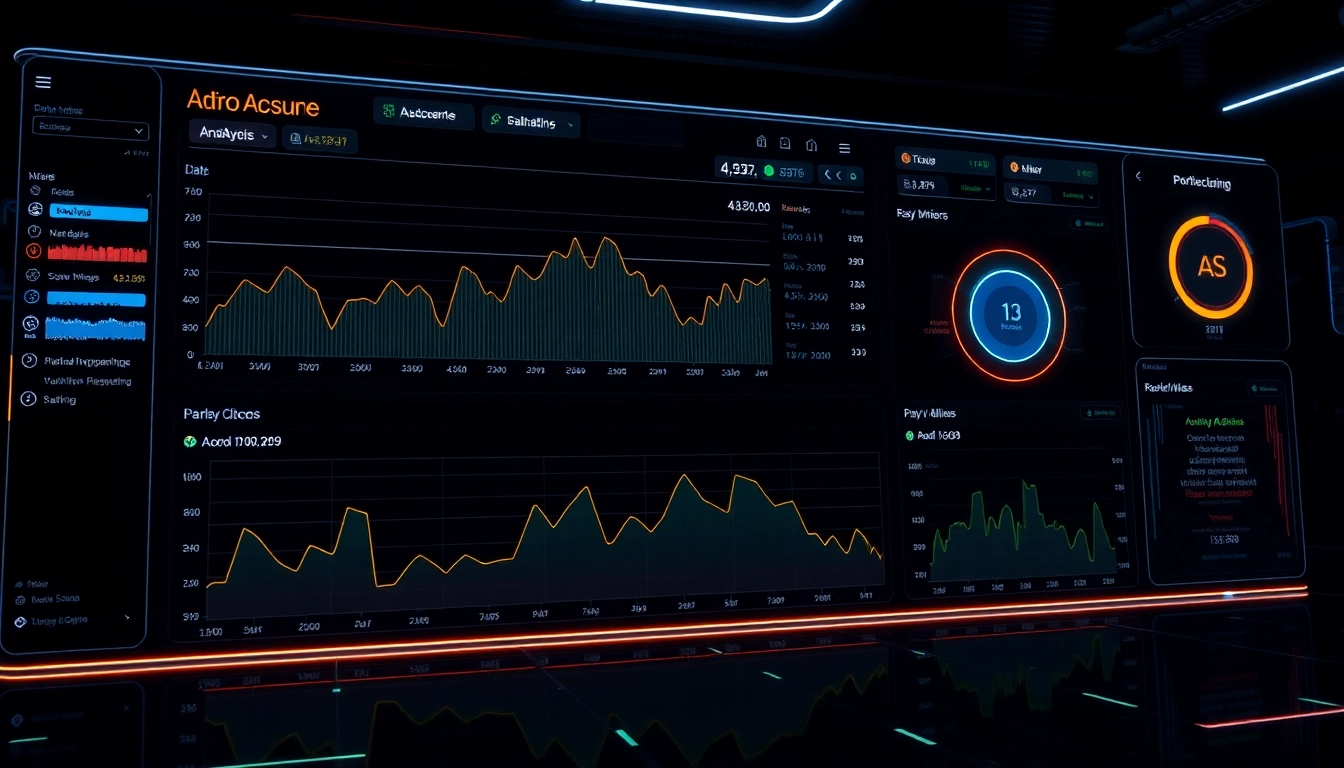Understanding the Fundamentals of Online Stock Trading in the UK
What is online stock trading and how does it work in the UK?
Online stock trading has revolutionized how UK investors access financial markets, enabling individuals to buy and sell shares through digital platforms with ease and convenience. Essentially, online stock trading involves using internet-based platforms—commonly known as trading apps or online brokers—that connect investors directly to stock exchanges such as the London Stock Exchange (LSE) and international markets. By leveraging such services, traders can execute transactions in real-time, access market data, and manage their investment portfolios all from their computers or mobile devices.
In the UK, participating in online stock trading typically involves opening a brokerage account with a licensed platform that adheres to stringent financial regulations by the Financial Conduct Authority (FCA). These platforms facilitate various types of trading, including equities, ETFs, options, and foreign currencies. The process begins with setting up an account, depositing funds, and then selecting investment instruments based on your risk appetite and financial goals. To understand the nuances of UK online trading, it’s essential to familiarize oneself with local regulations, trading hours, and market-specific factors.
You can explore more about the practicalities and advantages of engaging in Online Stock Trading UK as it offers insights into platform selection, investment strategies, and compliance considerations for UK traders.
Key benefits of trading stocks online for UK investors
- Accessibility and Convenience: Investors can trade ETFs, stocks, and other securities 24/7 from anywhere with an internet connection, removing the need for physical visits or phone orders.
- Cost Efficiency: Many UK platforms offer low fees, zero commissions, or fractional trading—optimizing costs especially for retail traders aiming to build diversified portfolios without substantial capital.
- Real-Time Market Data: Online platforms provide instant access to live market quotes, news feeds, and analytical tools, empowering traders to make informed decisions quickly.
- Enhanced Control and Transparency: Investors have direct command over their trades and portfolios, with audit trails and detailed transaction histories promoting transparency.
- Educational Resources and Demo Accounts: Reputable UK platforms often include tutorials, webinars, and risk-free demo accounts that enable beginners to practice and learn without financial risk.
These advantages democratize investing, making it accessible to a broader UK audience, from casual investors to active traders seeking to capitalize on market fluctuations.
Legal and regulatory considerations for UK trading platforms
Operating within the UK financial ecosystem necessitates strict adherence to regulations set by the FCA, which aims to protect investors, maintain market integrity, and promote fair practices. When selecting a trading platform, verify its FCA authorization and registration to ensure compliance. Such platforms are obligated to follow rules governing client fund segregation, transparency in pricing, and dispute resolution mechanisms.
UK traders should also be aware of the Financial Services Compensation Scheme (FSCS), which offers protection up to £85,000 per eligible client in case a financial firm fails. Moreover, platforms are required to offer clear disclosures about fees, risks, and trading conditions to enable informed decision-making.
Staying compliant not only safeguards your investments but also ensures that your trading activities are conducted in a secure legal environment, fostering trust and peace of mind.
Choosing the Right Online Trading Platform in the UK
Features to look for in a UK-based trading platform
With numerous options available, discerning the features that align with your trading needs is crucial. Key attributes include:
- User-Friendly Interface: Easy navigation and clear functionalities help both beginners and advanced traders execute trades efficiently.
- Comprehensive Market Access: Platforms should provide access to UK and global markets, including equities, ETFs, foreign exchange, and derivatives.
- Cost and Fee Structure: Transparent fee schedules—covering commissions, spreads, withdrawal, and account maintenance fees—are vital for profitability.
- Analytical Tools and Charting: Advanced technical analysis tools, real-time data feeds, and customizable charts aid in identifying trading opportunities.
- Mobile and Desktop Compatibility: Seamless operation across devices ensures flexibility in managing trades on the go.
- Security Measures: Encryption, two-factor authentication, and FCA licensing protect your financial data and funds.
Comparison of top UK trading platforms in 2025
Several platforms stand out in 2025 for their features, reputation, and user satisfaction. Notably:
- Interactive Brokers UK: Offers sophisticated tools catering to active traders and professional investors, with global market access and extensive research resources. Learn more here.
- Trading 212: Known for commission-free trading, fractional shares, and an intuitive mobile app ideal for beginners. It provides a demo account to practice strategies risk-free.
- Freetrade: Emphasizes zero commission trading with a simple interface, suitable for casual investors and those seeking to build long-term wealth.
- Lloyds Bank Share Dealing: Combines traditional banking with online stock trading, offering accessible fee structures tailored towards UK retail investors.
When evaluating these platforms, consider your trading style, capital, risk appetite, and desired features to select the best fit.
How to set up and optimize your trading account
Establishing a trading account involves several carefully executed steps:
- Research and Choose a Platform: Based on features, costs, and user reviews, ensure the platform is FCA-licensed.
- Complete the Registration Process: Provide personal identification, proof of address, and financial details to comply with anti-money laundering regulations.
- Deposit Funds: Transfer money via bank transfer, electronic payment, or other supported methods, bearing in mind minimum deposit requirements.
- Configure Trading Settings: Set notifications, default order types, and risk management preferences such as stop-loss and take-profit levels.
- Utilize Educational & Demo Tools: Practice with demo accounts to refine your strategies before trading with real capital.
Optimization involves continuous review of your trading parameters, staying updated with market news, and leveraging platform analytics to improve decision-making.
Developing a Successful UK Stock Trading Strategy
Fundamental analysis vs. technical analysis in the UK market
Crafting an effective trading strategy requires understanding the distinction between fundamental and technical analysis. Fundamental analysis involves evaluating a company’s financial health, earnings, growth potential, and macroeconomic factors to determine stock intrinsic value. It is particularly useful for long-term investors seeking value or growth opportunities.
Conversely, technical analysis focuses on price patterns, volume, and momentum indicators to identify short-term trading opportunities. By analyzing charts and historical data, traders can predict short-term price movements and execute timely trades.
Successful traders often blend these approaches, adapting their methods to market conditions. In the UK context, economic indicators such as GDP growth, Brexit-related developments, and sector-specific trends significantly impact fundamental evaluations.
Risk management and setting stop-loss orders
Managing risk is paramount in online trading. Implement strategies that limit potential losses by setting stop-loss and take-profit orders for each trade. For example, placing a stop-loss at a percentage below the entry price can protect against adverse market moves.
Diversification across sectors and asset classes also reduces exposure to any single market shock. Emphasize maintaining a disciplined trading plan, avoiding emotional decisions, and adjusting your risk parameters as your experience grows.
Building a diversified portfolio for long-term growth
Long-term success hinges on diversification—spreading investments across various sectors, companies, and instruments. In the UK, consider including a mix of large-cap stocks like those on the FTSE 100, mid-cap growth stocks, and ETFs tracking diverse indices or sectors.
Rebalancing your portfolio periodically, based on performance and changing market conditions, ensures alignment with your financial goals and risk tolerance.
Tools, Resources, and Tips for UK Traders
Utilizing educational tools and demo accounts effectively
Many UK trading platforms offer free educational resources, including webinars, tutorials, and market analysis reports. Beginners should capitalize on demo accounts to test strategies without risking real money, gaining familiarity with order types and platform features.
Consistent learning and simulation help improve decision-making and reduce mistakes in live trading scenarios.
Staying updated with UK stock market news and data
Staying informed requires regular consultation of reputable news outlets, official economic reports, and market data feeds. Platforms like the London Stock Exchange provide real-time data, news updates, and sector-specific reports, which are invaluable for timely trading decisions.
Combining fundamental insights with technical signals enhances your ability to anticipate market movements.
Common pitfalls to avoid in online stock trading in the UK
Common mistakes include overtrading, neglecting risk management, and chasing losses. Emotional trading often leads to poor decisions; instead, develop and stick to a well-planned strategy. Avoid excessive leverage, which can amplify losses, and always verify information before executing trades.
Patience, discipline, and continuous education are vital to avoid these pitfalls and foster sustainable growth.
Analyzing Performance and Scaling Your Trading Business
Tracking trading success with analytics and metrics
Use platform analytics and third-party tools to monitor key performance indicators such as win rate, average return per trade, and maximum drawdown. Maintaining a trading journal helps identify strengths, weaknesses, and patterns to refine your approach.
Regular review ensures your strategy remains effective amidst changing market dynamics.
Adjusting strategies based on market performance
Markets are inherently dynamic; adapt your strategies by analyzing recent performance metrics. For example, during high volatility periods, adopting more conservative risk settings or switching to different asset classes may better suit current conditions.
Flexibility and continuous learning are crucial for long-term success.
Expanding your trading portfolio and investment horizons
As you gain confidence and experience, consider diversifying into international markets, commodities, or advanced derivatives to enhance returns and hedge against local market downturns. Setting incremental goals and reinvesting profits can compound growth over time.
Remember, prudent scaling necessitates ongoing education and robust risk management.



